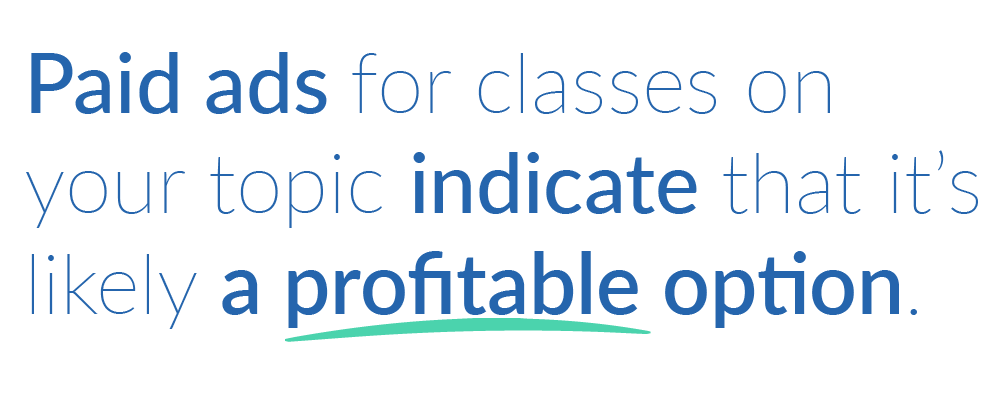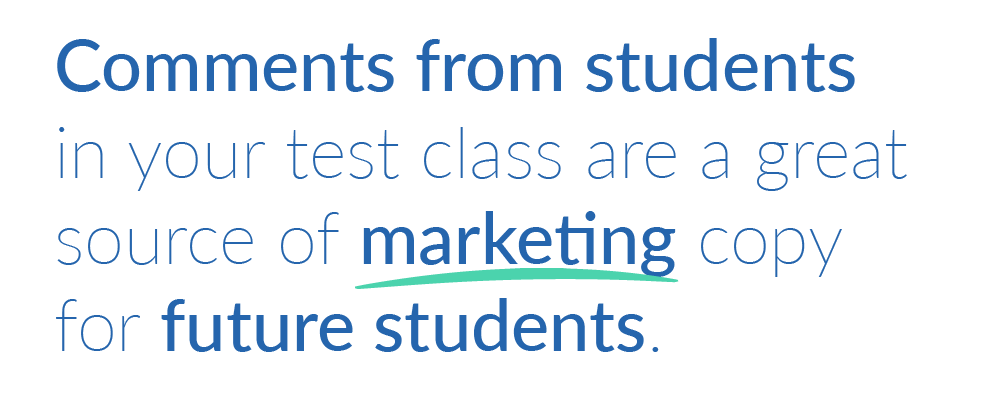Best Practices
Grow Your Program
An Educated Decision – Tips on Validating Your Next New Class

“How can I tell if this class I’m considering will be a success or a failure before I run it?”
“I have a great idea for a class!” is a phrase you’re probably all too familiar with. It might be initiated by anyone —a student, teacher, or a community or board member. Sometimes you know it will be a hit but other times you may simply not know if the suggestion is worth pursuing.
Launching With Confidence
“Should I add this class?” How can you launch a new class with confidence, knowing that you’ve done your best to ensure that it’s what your learning community wants? How do you show your director or board that it will have a positive outcome for your program?
Fortunately, there are many ways to explore how successful a class will be so you can feel like your decision to add —or not add— is a good one.
Proof of Market
When we’re passionate about something, we often assume that everyone else is as well. However, this isn’t always the case! Thankfully, there are concrete ways to gauge your community’s interest by keeping them constantly in mind as you undergo your class selection process.
Before adding a new class, you want to make sure that what people will do lines up with what they say they will do by doing some simple research.
Before you begin your market validation, there are some initial questions you’ll want to consider:
- Who would take this class? Is it an opportunity to attract a new audience?
- What reason is there to offer this class? Is there a community initiative or new interest in the topic?
- What is the expected outcome of the class? What will your program and your students get out of it?
- What would they pay for this class?
- What will it cost to run this class? Can the class break even?
- How will this class be marketed? Does it open new avenues to connect you with new audiences?
- Does anyone else offer this class in your market? If so, how would this class differ?
- Does your program already offer similar classes? Are they successful or struggling to meet enrollment?
Practical Research
While you’re answering those questions, you’ll also want to spend some quality time with a search engine. You’ll be looking for other places that are offering a similar class — it’s probably a good sign that there’s some kind of interest if you find some, especially if they’re not direct competitors in your space. Add bonus points if the organization offering it is similar to yours in size, type, or community.
Tools like Google Trends are also helpful when trying to understand what might be popular and even when it might be best to offer a class. For example, if the proposed class is “Basic Lawn Mower Repair” we learn from a Google Trends search on lawn mower repair that this topic is most searched in May (as of this writing), and if your program is in one of many southern states, this could be really popular!
A regular Google search for “lawn mower repair classes” shows many classes both online and in person, which suggests that the class is feasible and something that has been successful in other places. The search also reveals that some programs are marketing this class with paid ads, which indicates that it’s likely profitable as well!
If you don’t find anyone at all offering your proposed new class, you should ask yourself why that is – is it running ahead of the trend or is it not popular and profitable?
Involve Your Audience
If it seems like the class will be successful based on your initial research, your next step should be to check with your learning community. You can do this with focus groups, email surveys, phone calls, or even in casual conversations with students. Just be sure you record the data you collect in a central location so your program has the information to use later. For example, you may wish to check the results of running the class against your initial expectations or use it to jump-start research for a similar class in the future.
Run a Test Class
You might also offer a special workshop on the new topic or one close to it. It might be free or very low cost, with the understanding that students will be asked for feedback. This gives you a chance to do some light promotion, gauge general interest, and see how students interact with the material at a lower risk. At the program’s end, you could explore in conversation or with a follow-up evaluation whether the students would consider taking a full session and what price point might be acceptable to them. You may also see about using their comments when you advertise the new class. Comments from students in your test class are a great source of marketing copy for future students.
An Educated Decision
The data you collect during this process should be able to guide you in knowing whether or not a class is going to be successful for your program.
From this, you may want to build a rubric that helps you assess new classes in the future. You can assign a point value to different categories and use it to gauge how successful the proposed class may be. You can start from scratch or use a free rubric tool like QuickRubric. We created a sample one here to get you started.*
New classes are vital for healthy programs, bringing in fresh ideas, experiences, and audiences. You can now consider your next new class with plenty of data to lead you to an educated decision about expanding your program!
*Feel free to copy and edit this rubric. In order to save your own version, QuickRubric will ask you to create a free account.

Nic Lyons
Nic is skilled in scaling start-up edtech and education organizations to growth-stage success through innovative marketing. A former journalist and copywriter, Nic holds a postgraduate certificate in digital and print publishing from Columbia University School of Journalism's publishing course.

